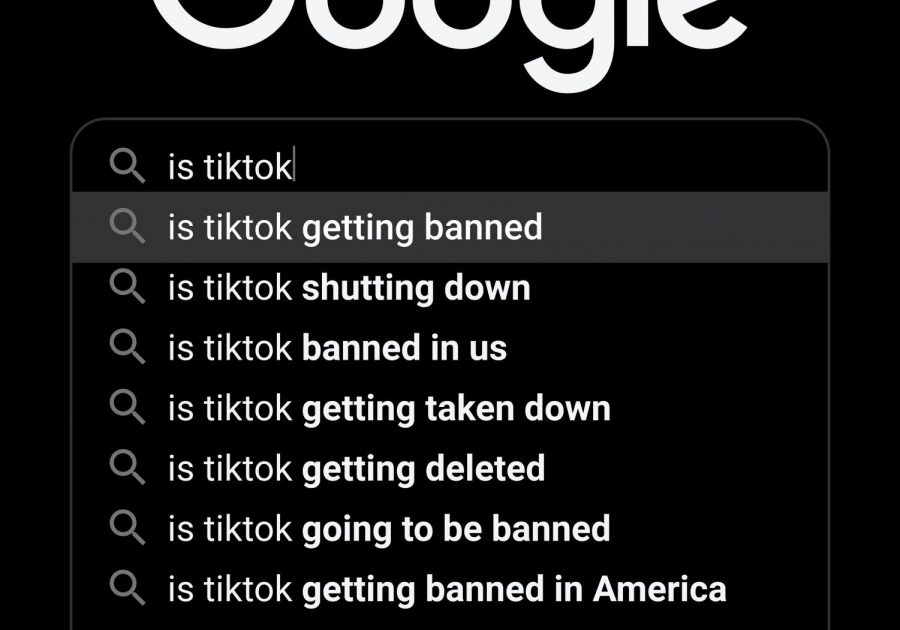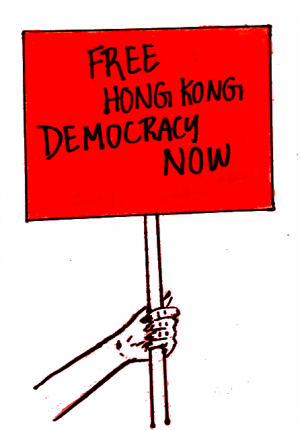Possible TikTok and WeChat bans harm First Amendment rights and U.S.–Chinese relations
@visuals on Unsplash
The decision to ban the Chinese apps TikTok and WeChat is purely politically motivated and would threaten the rights of American consumers while harming the Asian-American community.
November 2, 2020
This summer, the Trump administration proposed bans on Chinese social apps TikTok and WeChat due to supposed privacy concerns, but a nationwide ban is a bad course of action because it will damage U.S.–Chinese relations, threaten freedom of speech rights, and harm millions of consumers, especially Asian-Americans.
TikTok, owned by Chinese company ByteDance, is known for its largely Gen Z user base and centers around the production of 15-60 second videos of all topics in an endless scrolling format. The app has amassed over a billion users in more than 150 countries.
In March, TikTok was accused of censoring content from users believed to be “ugly, overweight, disabled, or poor,” and from those who speak out against Chinese government officials or do not promote “national honor or interests,” according to Business Insider. Online media site The Intercept released company policies that were reportedly used to inform moderators to limit this content from getting on the app’s main feed, called the “For You” page.
But no evidence has been released proving that TikTok stores this personal data from users, and the policies are carried out by algorithms rather than actual employees.
ByteDance responded by saying the policies were purely meant to boost the appeal of their content and attract new users, not dissimilar to other social media strategies. They also claimed the policies “were never in place in the US market and were no longer in use at all.”
Unlike TikTok’s video format, WeChat is primarily a messaging app with a mobile payment service and many other features. Owned by Chinese tech giant Tencent, it is an integral part of life in China, boasting tens of millions of users there. There are also over a million WeChat users in the United States because it is one of the only ways to contact relatives or friends in China.
Similar to TikTok, the app has come under scrutiny over claims that it censors content from specific users or from those who speak out against the Chinese government.
This censure revealed that ByteDance and Tencent could have the ability to read and store data from users’ videos or private messages, which Beijing could theoretically then access. Once again, however, there has been no proof that an average user’s data or personal information is at risk.
Nevertheless, multiple US military branches and government agencies have already advised their employees against using TikTok or have banned it outright because of the security threats. India also banned TikTok and WeChat on June 29 along with 58 other Chinese apps.
The truth about these bans are that they are purely politically and economically motivated. Their motivation only goes to support the Trump administration under the guise that they are protecting the privacy of the ordinary consumer. The bans would worsen Washington’s already strained relationship with Xi Jinping.
Justin Sherman, a writer for the Atlantic Council, commented: “Some in Washington, this administration included, may love the idea of expelling all technology from the country that has any connection to China. But that approach simplifies complex supply chain security decisions.”
The truth is that the US has an extremely interwoven relationship with China regarding technology and we rely on them heavily for such services. As a result of this dependence, it’s nearly impossible to prove that banning two apps would eliminate the potential security threats.
“The Trump administration is pursuing a dangerously broad and unproductive whack-a-mole policy that’s not about security,” said Sherman. “The United States benefits from internet freedom and openness, and has long been a staunch global defender of those principles, even in light of cyber and information threats posed through that interconnection.”
According to CNN, the stipulation of the ban as proposed by the Trump administration states that TikTok’s software must be transferred to an American company, and as of Sept. 21, California-based Oracle planned to initiate this transition. A full ban on WeChat is set to be implemented in the near future but was recently blocked by judges. As of Oct. 11, you can still download both apps but you cannot make in-app purchases or updates.
These restrictions, though not total bans, still pose major threats to our country.
On Sept. 18, Hina Shamsi, director the American Civil Liberties Union’s National Security Project, released a statement following the executive order directing the restrictions:
“This order violates the First Amendment rights of people in the United States by restricting their ability to communicate and conduct important transactions on the two social media platforms. The order also harms the privacy and security of millions of existing TikTok and WeChat users in the United States by blocking software updates, which can fix vulnerabilities and make the apps more secure.”
Shamsi argued that “comprehensive surveillance reform and strong consumer data privacy legislation” would be better methods to combat security threats.
Sherman from the Atlantic Council agreed, suggesting the US should “enact strong federal privacy laws to restrict data collection, sale, and analysis by corporations” and “develop objective criteria for the US government to assess and communicate why one hardware or software manufacturer is more trustworthy than another.” He thinks that building these long-term strategies would be much more efficient and effective than banning individual apps.
A full ban on these apps could pave the way for further American censorship, which is exactly the reason for which the bans were implemented in the first place. For a country that prides itself on its First Amendment rights, this would set an extremely dangerous precedent about the future of internet freedom.
Furthermore, banning WeChat in particular would be a huge loss to the Asian-American community, which considers the app a lifeline to communicate with friends and family in China or other Asian immigrants living in the US.
“WeChat provides this bridge for [Asian-Americans] to empower one another,” said Xing Lu, a professor emeritus in the College of Communication at DePaul University in Chicago, for the New York Times. She said that the app became her “virtual home” when she felt isolated from her colleagues.
Dougherty Valley students feared the bans because it would leave them unable to message their relatives in China. WeChat is considered the only legal messaging platform available in both countries.
“I wouldn’t be able to [communicate] other than calling,” said one student, who stated that WeChat is much more efficient than calling due to time zone differences.
One should be conscious that the apps do potentially pose true security threats. However, the ban’s threats to Americans’ personal freedoms and our already fraying relationship with China pose greater risks than the purported data breaches, which will do little to harm ordinary citizens in our country.





